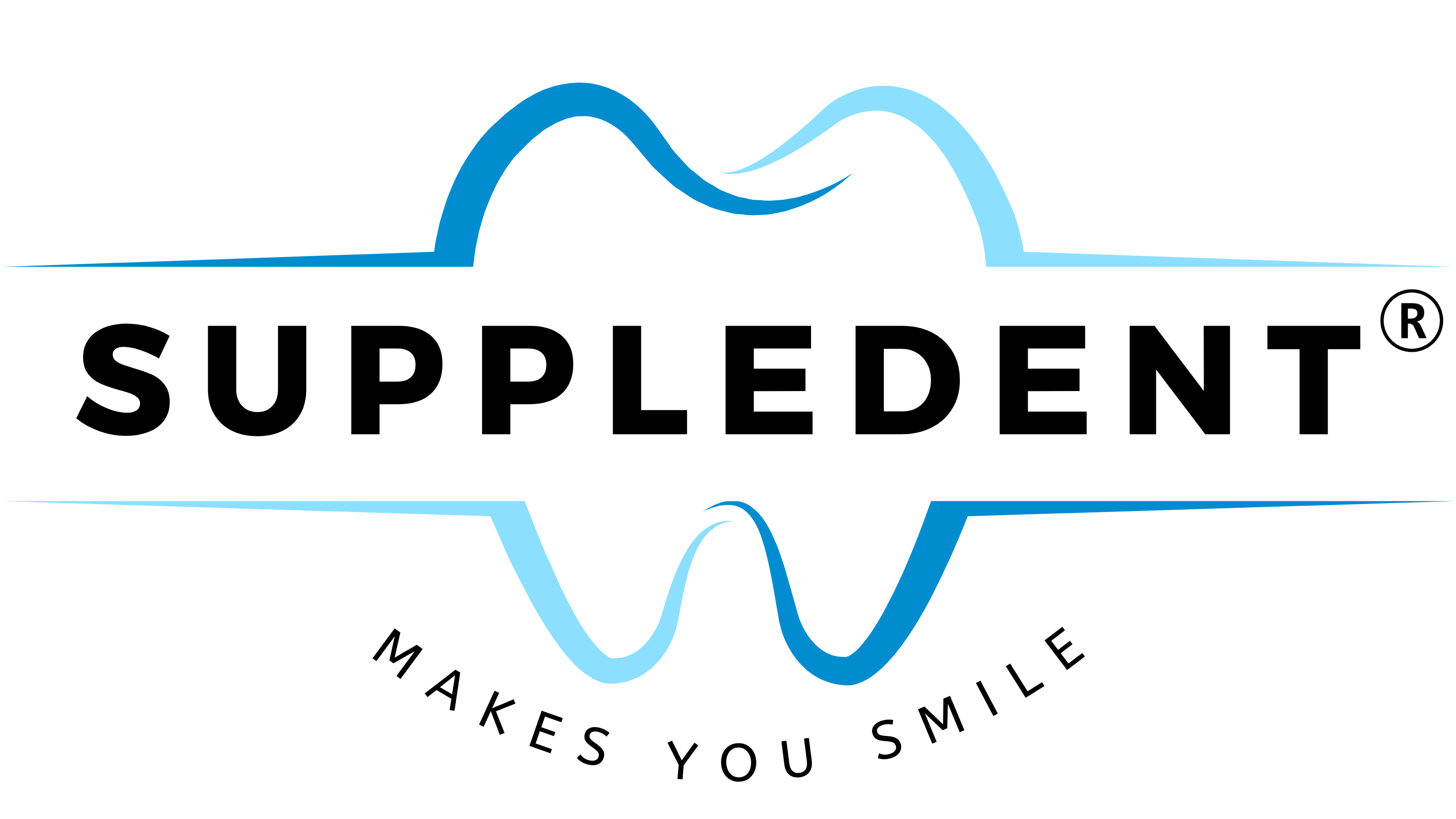Healthy teeth are an essential component of our overall health and quality of life. In addition to good oral hygiene and regular dental visits, diet also plays an important role in dental health. In recent years, interest in collagen as a dietary supplement has increased, and its potential benefits for skin, hair, and joint health have been widely discussed. But what about the role of collagen in healthy teeth? In this blog post, we take a closer look.
What is collagen?
Collagen is the most abundant protein in the human body and forms an essential component of connective tissue, skin, bones, tendons, and teeth. It is known for its structural role, providing strength, elasticity, and structure to tissues. In fact, collagen accounts for approximately 30% of the total protein content in the human body. This protein is composed of long chains of amino acids that are intertwined to form strong fibers. There are different types of collagen, differentiated according to their function and abundance in the body. For example, type I collagen is the most abundant and is found primarily in skin, bones, tendons, and teeth, while type II collagen is found primarily in cartilage tissue. The importance of collagen to the body lies not only in its structural role but also in its ability to retain moisture and support cells. It is crucial for the regeneration and maintenance of tissues, as well as for the health of skin, hair, nails, and teeth. Therefore, an adequate intake of collagen through diet or supplements is important to maintain the health and functionality of these tissues.
Collagen and the structure of teeth
Collagen plays a crucial role in the formation and maintenance of our teeth' structure. A tooth's structure consists of various layers, including enamel, dentin, and gums, all of which rely on collagen for their strength and integrity.
Enamel:
Enamel is the outermost layer of a tooth and is considered one of the hardest substances in the human body. It is largely composed of minerals such as hydroxyapatite, but collagen plays a crucial role in the structure and strength of the enamel. Collagen fibers serve as a framework that holds the minerals in the enamel together, giving it its strength.
Dentin:
Dentin is a layer beneath the enamel and makes up the bulk of the tooth structure. It is less hard than enamel, but still resilient. Collagen fibers in dentin provide its structure and elasticity, allowing it to absorb pressure and stress on the teeth.
Gums:
The gums, or gingival tissue, surround the teeth and form a protective barrier against bacteria and infections. Collagen is also crucial here, as it supports the structure of the gums and ensures their strength and elasticity. Healthy gums are important for anchoring the teeth in the jawbone and for protecting against periodontal diseases such as periodontitis.
In summary, collagen is essential for the health and structure of our teeth. It forms the basic framework for enamel, dentin, and gums, ensuring their strength, elasticity, and functionality. Adequate collagen intake through diet or supplementation can help support dental health and keep teeth strong and healthy.
Collagen and gum health
The gums play a crucial role in the health of our teeth, acting as a protective barrier against bacteria and infections. Collagen is an essential component of the gums and plays a vital role in maintaining their structure and function.
Support of the gum structure:
Collagen fibers form the basic structure of the gums and are responsible for their strength and elasticity. A sufficient amount of collagen is crucial for keeping the gums healthy and stable. This also supports the anchoring of the teeth in the jawbone.
Prevention of periodontal diseases:
Periodontal diseases such as gingivitis and periodontitis can occur when the gums are inflamed or weakened. Collagen can help prevent these diseases by strengthening the structure of the gums and reducing inflammation. By supporting the integrity of the gums, collagen helps reduce susceptibility to infection and improve overall oral health.
Promoting wound healing:
When injuries or surgical procedures occur in the mouth, rapid and effective wound healing is crucial. Collagen plays an important role in this process by supporting the formation of new tissue and accelerating the regeneration of damaged gums. This helps improve recovery after tooth extractions, implants, or other dental procedures.
In summary, collagen is an important factor for gum health. It supports gum structure, prevents periodontal disease, and promotes wound healing in the mouth. By maintaining a balanced diet and possibly supplementing with collagen, we can support the health of our gums and thus contribute to overall dental health.
Sources of collagen in the diet
A balanced diet is crucial for the health of our teeth and gums. Natural sources of collagen can help increase intake of this important protein and support oral health. Here are some foods rich in collagen:
Bone Broth: Bone broth is an excellent source of collagen because it's made from cooked animal bones, which are rich in collagen and other nutrients. Regular consumption of bone broth can help support collagen production in the body and promote healthy teeth and gums.
Fish and seafood: Fish and seafood such as salmon, tuna, shrimp, and mussels also contain collagen. These protein-rich foods are not only good for overall health but can also help increase collagen intake and support dental health.
Meat: Red meats like beef and lamb, as well as poultry, are also good sources of collagen. Eating lean meat not only provides you with important protein, but also collagen, which is important for healthy teeth and gums.
Gelatin: Gelatin is derived from animal collagen sources and can be found as a dietary supplement or in many foods such as gummies, puddings, and jellies. Consuming foods containing gelatin can help support collagen production in the body and improve the health of teeth and gums.
In addition to natural sources of collagen, supplementing with specialized collagen supplements can be a convenient way to ensure the body receives adequate amounts of this important protein. One example of such a supplement is Colladent, which contains not only collagen but also vitamin C and glycine, important cofactors for collagen production in the body. Taking Colladent can help compensate for potential collagen deficiencies and support the health of teeth and gums.
Tips for promoting dental health with collagen
Integrating collagen into your diet and practicing a holistic dental care regimen can help promote the health of your teeth and gums.
Here are some practical tips to support dental health with collagen:
Enrich your diet: Include collagen-rich foods like bone broth, fish, meat, and gelatin in your diet. These foods can help increase collagen production in the body and improve the health of your teeth and gums.
Colladent supplements: Supplement your diet with specialized collagen supplements like Colladent, which contain collagen, vitamin C, and glycine. These nutrients are important cofactors for collagen production and can help compensate for potential collagen deficiencies.
Healthy oral hygiene: Maintain good oral hygiene by brushing, flossing, and using mouthwash regularly. This helps remove plaque and bacteria that can cause dental problems.
Dental visits: Visit your dentist regularly for professional cleanings and checkups. Your dentist can identify and treat potential problems early to maintain dental health.
Avoid smoking: Avoid smoking and excessive alcohol consumption, as these habits can increase the risk of gum disease and other oral problems.
Healthy diet: Eat a balanced diet rich in fruits, vegetables, whole grains, and lean protein. A healthy diet contributes not only to overall health but also to dental health.
By following these tips and incorporating collagen into your diet, you can help improve the health of your teeth and gums and maintain a bright smile.
The role of collagen in the health of our teeth and gums is crucial. As a major component of connective tissue, collagen plays an essential role in structuring and strengthening tooth enamel, dentin, and gums. Getting enough collagen through our diet or supplements like Colladent can help boost collagen production in the body and compensate for any potential deficiencies. We can further support the health of our teeth and gums by practicing a holistic dental care routine that includes regular brushing, flossing, mouthwash, and regular dental visits, as well as avoiding harmful habits like smoking and excessive alcohol consumption. A healthy diet rich in collagen-containing foods like bone broth, fish, meat, and gelatin, as well as supplementing with special collagen supplements like Colladent, can have a positive impact on our dental health. By implementing these measures and maintaining a holistic dental care routine, we can help keep our teeth strong, healthy, and bright, and maintain the joy of a healthy smile.



